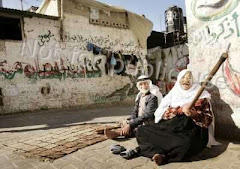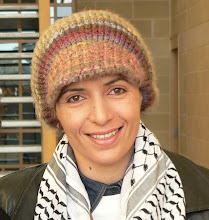The Third Annual Edmonton Israeli Apartheid Week
March 14 – 18, 2011
A week of presentations, workshops, film screenings, and cultural events to raise awareness around the Boycott, Divestment, and Sanctions (BDS) campaign against Israeli apartheid. All IAW 2011 events are open to everyone, and are free of charge. We look forward to seeing you there!
You can now check out the full schedule of events in Edmonton. For details of IAW events around the world, visit apartheidweek.org.
Presented by Palestine Solidarity Network, endorsed and supported by:
Alberta Public Interest Research Group (APIRG)
Canadians for Justice and Peace in the Middle East – U of A
Cinema Politica Edmonton
Edmonton Coalition Against War and Racism (ECAWAR)
Edmonton Queers Against Israeli Apartheid (EQuAIA)
Edmonton Small Press Association (ESPA)
Independent Jewish Voices (IJV)
If you are part of an organization, union, or collective that would like to endorse Edmonton IAW 2011, please email us at psnedmonton@gmail.com.
About Israeli Apartheid Week
Israeli Apartheid Week (IAW) is an annual international series of events held in cities and campuses around the globe. The aim of IAW is to educate people about the nature of Israel as an apartheid system and to build Boycott, Divestment, and Sanctions (BDS) campaigns as part of a growing global BDS movement. Last year, Israeli Apartheid Week (IAW) took place in more than 40 cities across the globe.
The past few years have seen a sharp increase of literature and analysis that has sought to document and challenge Israeli apartheid, including reports issued by major international bodies and human rights organizations and findings published by political leaders, thinkers, academics and activists. Many of these efforts have highlighted the role that could be played by people and governments across the world in providing solidarity with the Palestinian struggle by exerting urgent pressure on Israel to alter its current structure and practices as an apartheid state. Prominent Palestinians, Jewish anti-Zionists, and South Africans have been at the forefront of this struggle.
At the same time, an international divestment campaign has gained momentum in response to a statement issued in July 2005 by over 170 Palestinian civil society organizations calling for boycotts, divestment and sanctions (BDS) against apartheid Israel. Important gains have recently been made in this campaign in countries like South Africa, the United Kingdom, Canada and the United States.
The aim of IAW is to contribute to this chorus of international opposition to Israeli apartheid and to bolster support for the BDS campaign in accordance with the demands outlined in the July 2005 Statement: full equality for Arab-Palestinian citizens of Israel, an end to the occupation and colonization of all Arab lands – including the Golan Heights, the Occupied West Bank with East Jerusalem and the Gaza Strip – and dismantling the Wall, and the protection of Palestinian refugees’ right to return to their homes and properties as stipulated in U.N. resolution 194. In previous years IAW has played an important role in raising awareness and disseminating information about Zionism, the Palestinian liberation struggle and its similarities with the indigenous sovereignty struggle in North America and the South African anti-Apartheid movement. Join us in making this a year of struggle against apartheid and for justice, equality, and peace.
This year marks the third annual Israeli Apartheid Week in Edmonton, and the seventh year the week has been hosted internationally since its founding in Toronto.
WEDNESDAY, MARCH 16, 2011
The Season of Revolt: New Arab Uprisings and Implications for Apartheid
Wednesday, March 16 (7:00 – 9:00 pm)
Telus Building Room 236/238
(Corner of 87 Avenue and 111 Street, U of A Campus)
(Click here for map)
Help us spread the word! Invite your friends to the Facebook event.
A fast-paced tsunami of revolutionary uprising is changing the social and political map of the Middle East and North Africa. Triggered by the Tunisian protest movement, this tsunami of change has already ended Mubarak’s 30-year dictatorship in Egypt, and has brought a re-birth of street politics to Algeria, Yemen, Jordan, Bahrain, Morocco, Libya, and other parts of the region. What do these developments mean for Israel and for Palestinians? What is their likely impact on the Palestinian anti-apartheid movement in the occupied territories, as well as inside Israel? Will they trigger a popular protest movement against racialized segregation and disenfranchisement? Finally, to what extent will the recent events change the balance of power in the region and the prospects of continuation of Israeli apartheid?
Panelists:
Dr. Ghada Ageel (PhD from University of Exeter)
Dr. Ibrahim Abu-Rabi (University of Alberta Department of Political Science)
Philip Weiss (Co-editor of Mondoweiss, via Skype)
Moderator: Fayyad Sabha (Palestine Solidarity Network)
About the speakers:
Dr. Ghada Ageel is a third generation Palestinian refugee. She was born and raised in the Khan Younis Refugee Camp in the Gaza Strip, were she attended high school and completed a BA in Education. In 1999, Ghada won the Jerusalem Studies’ Scholarship of the University of Exeter in Britain, where she completed her Master’s degree in Middle East Politics, and her PhD in Refugees Studies. Sine then, Ghada has worked with several organizations and institutions in Canada, UK and Palestine. She currently lives in Edmonton and works at the Canadian Islamic Centre.
Professor Abu-Rabi is a Palestinian who was born in Nazareth, Galilee. He holds dual citizenship in the U.S. and Israel. He is currently the ECMC Chair in Islamic Studies at the University of Alberta, and a professor at the department of Political Science. He has a special interest in the study and practice of interfaith dialogue between the Islamic and Christian religious traditions. Dr. Abu-Rabi specializes in issues of contemporary Islamic thought, particularly on religion and society in the contemporary Arab world, Turkey and South East Asia. Abu-Rabi is the author of Jewish-Muslim Dialogue, Israel’s Fate Will be Tied to the Middle East’s, and Trends and Issues in Contemporary Arab Thought.
Philip Weiss is, along with Adam Horowitz, the co-editor of the online magazine Mondoweiss, a “news website devoted to covering American foreign policy in the Middle East, chiefly from a progressive Jewish perspective.” He has been a contributing writer to the New York Times Magazine and a contributing editor to Esquire, Harper’s Magazine, and the New York Observer.
THURSDAY, MARCH 17, 2011
The Apartheid of Displacement: Voices from the Palestinian Diaspora
Thursday, March 17 (7:00 – 9:00 pm)
Business Building Room 1-5
(11211 Saskatchewan Drive, University of Alberta Campus)
(Click here for map)
Help us spread the word! Invite your friends to the Facebook event.
Since the Nakba (Arabic for “catastrophe”) of 1947-1948, in which some 500 Palestinian villages were destroyed and at least 700,000 Palestinians were forced from their homes or lands, in what Israeli historian Ilan Pappe has called “the ethnic cleansing of Palestine.” The majority of these Palestinian refugees — now numbering over 5.5 million — have since been forced to live in exile, prevented despite multiple UN resolutions and international law to return to their homes, and unable to call any other place home. Come hear the stories of generations of Palestinians living in the diaspora, from refugee camps in neighboring Arab countries to life in western society.
About the speakers:
Dr. Ghada Ageel is a third generation Palestinian refugee. In 1948, her family was expelled from their homes and lands in the village of Beit Daras in what was then known as mandatory Palestine and is now part of Israel. Ghada, was born and raised in the Khan Younis Refugee Camp in the Gaza Strip, were she attended high school and completed a BA in Education. In 1999, Ghada won the Jerusalem Studies’ Scholarship of the University of Exeter in Britain, where she completed her Master’s degree in Middle East Politics, and her PhD in Refugees Studies. Sine then, Ghada has worked with several organizations and institutions in Canada, UK and Palestine. She currently lives in Edmonton and works at the Canadian Islamic Centre.
Samar El-Bekai is a second generation Palestinian refugee. Her father’s family are refugees from Beria, Safaad, while her mother’s family are exiled Palestinians from Salfeet, Nablus. Her parents met and married while studying in the former USSR where after completing their studies they lived for 3 years in Al Yarmook refugee camp in Syria. After which they moved to settle in a village in Lebanon, where Samar was born. There Samar grew up until 10 years of age when her family immigrated to Canada. Samar completed a BSc in Immunology and Infectious Diseases at the University of Alberta and also received a Diploma in Medical Laboratory Technology from NAIT. She is currently employed at the Provincial Laboratory of Alberta as a Medical Lab Tech.
Reem Skeik is a Palestinian immigrant. Her father’s family is from Gaza, while her mother’s family are Palestinian refugees from Jaffa. After their expulsion in 1948, the family lived in Lebanon for a few years, and eventually settled in Kuwait, where Reem was born. After the Gulf War, like many other Palestinian refugees, Reem’s family endured another expulsion. Reem and her family settled in Gaza, where she started her elementary education for the next four years, until immigrating to Canada. In Edmonton, Reem continued her education, completing a BSc in Molecular Biology and Genetics at the University of Alberta. She is currently at the University of Alberta completing her Master’s degree in the same field.
Wednesday 2 March 2011
Subscribe to:
Posts (Atom)
Palestinian refugees sit at Khan Younis refugee camp


